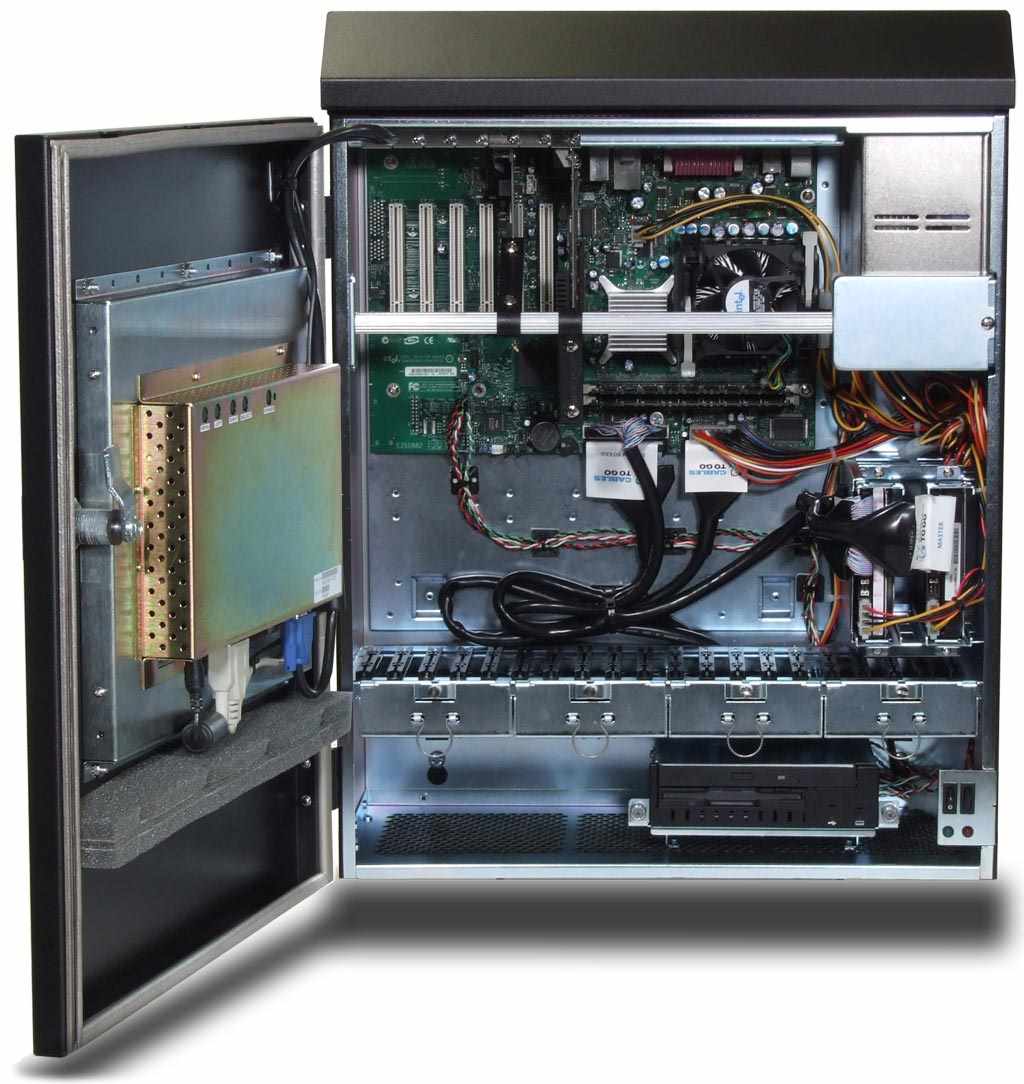
Embedded PC Enclosures – Should You Go With Metal Or Plastic?
Posted on May 1, 2022
In desktop computers, picking the PC enclosure material is mostly an aesthetic choice. With industrial PCs though, this factor has to be considered carefully. There is no one perfect material that does well in every scenario – different situations call for different types of PC enclosures.
Here is an overview of the pros and cons of the different PC enclosures you can choose from.
Metal PC Enclosures – The Industrial Choice
Unsurprisingly, metal enclosures are the staple option in most industrial environments. This is because such enclosures are far more durable, making them more suited to harsh conditions.
Stainless steel and Aluminum are the two types of metals generally used. Aluminum is far more common, owing to its low cost and lighter weight, but steel is often used when impact resistance is important.
Pros
- Metal enclosures are very durable. Steel enclosures are stronger than aluminum, but even aluminum can take more of a beating than plastic. This makes such enclosures ideal for rugged PCs used in industrial settings.
- Both aluminum and stainless steel are also highly resistant to corrosion. This makes metal enclosures suitable for industrial processes releasing noxious fumes, whereas a plastic enclosure would deteriorate over time.
- If you are going for a fanless system, the cooling depends on the fins on its surface. This type of cooling requires a thermally conducting material like aluminum to create a passive airflow and keep the system functioning properly in high temperatures.
Cons
- Compared to plastic, metal enclosures can be expensive. The cost can be offset somewhat by going with aluminum, but plastic enclosures would be more cost-effective in larger numbers.
- Metal enclosures also happen to be heavy. Once again, aluminum is better than steel in this regard, being lightweight enough to be used as an enclosure for any type of embedded PC.
Plastic PC Enclosures – The Aesthetic Option
In many commercial applications, durability isn’t really a factor. Embedded computers deployed in shops for powering surveillance and billing systems, for example, are unlikely to face chemical reagents or need shock resistance.
For these scenarios, plastic enclosures can be a good choice. Plastic is cheap, easy to clean, and looks better. Its insulating nature means that there is no chance of any accidental electric discharges either.
Pros
- The biggest advantage of plastic enclosures is probably their lower cost. When you are ordering PCs in bulk, choosing plastic over a metallic enclosure can cut the costs down significantly.
- Plastic also happens to be an insulator, preventing any issues arising from excess heat buildup or electric shocks. As a result, plastic enclosures are preferred in applications where the PC is to be routinely handled.
- Aesthetically, plastic enclosures look much better than metallic ones. Applications where the embedded system is to be prominently displayed – usually in commercial settings – usually prefer plastic for this reason.
Cons
- As you might expect, plastic enclosures aren’t very durable. This is not a problem if the PC is to be installed in a normal indoor setting, but any deployment in harsh conditions requires metallic enclosures.
- Fanless cooling is also not possible to implement with a plastic enclosure. Such cases are designed with aluminum fins to radiate the heat away, taking advantage of its better thermal conductivity.
- Plastic is also vulnerable to corrosion. Facilities using reactive chemicals should never use plastic enclosures for their PCs, as the gradual degradation can expose the computer, leaving it vulnerable.
The Verdict
Overall, aluminum enclosures are the best choice. Such PCs are durable, lightweight, and relatively cheaper to produce. They can also be configured for fanless cooling, which is essential for rugged systems meant to be deployed in high temperatures.
That doesn’t mean other materials have no use, though. Plastic enclosures, for example, are excellent for normal indoor deployments, where endurance and cooling aren’t an issue. They look better and are even cheaper than aluminum, besides being safer to handle directly.
Stainless steel only sees use in scenarios requiring high impact resistance, where the extra weight and cost are manageable. This includes industrial automation, where rugged PCs are mounted on steel cases around heavy machinery.
Ultimately, the choice of which material to use for PC enclosures boils down to where and how it would be deployed. Both plastic and metal enclosures have their unique advantages and disadvantages, providing the right answer for every need.
